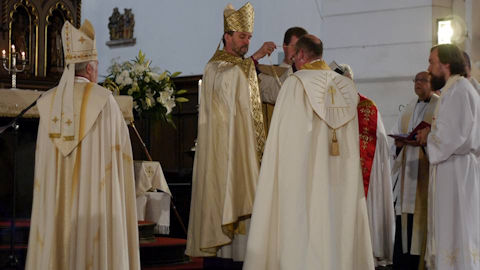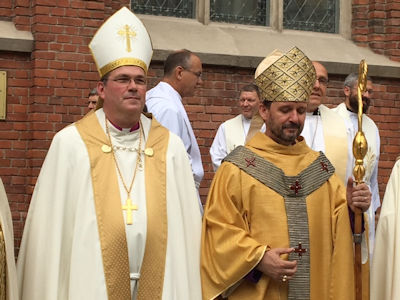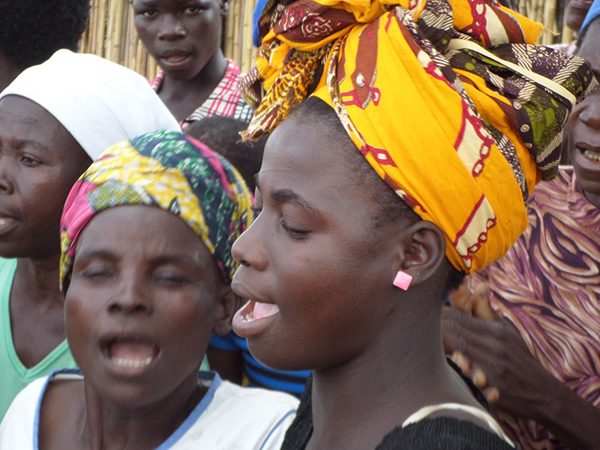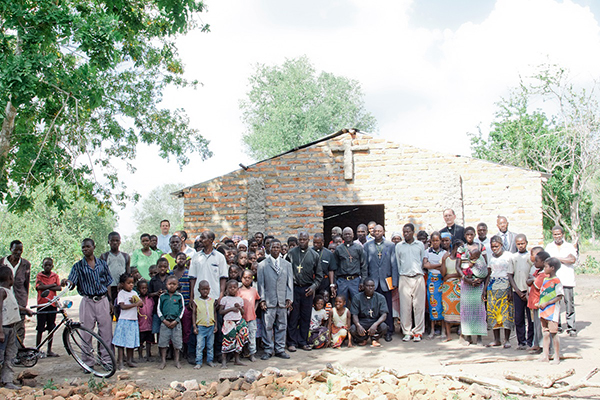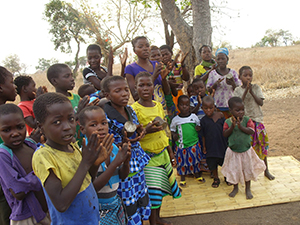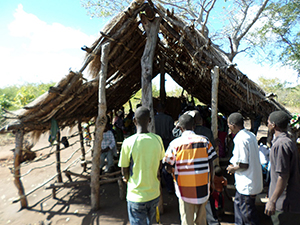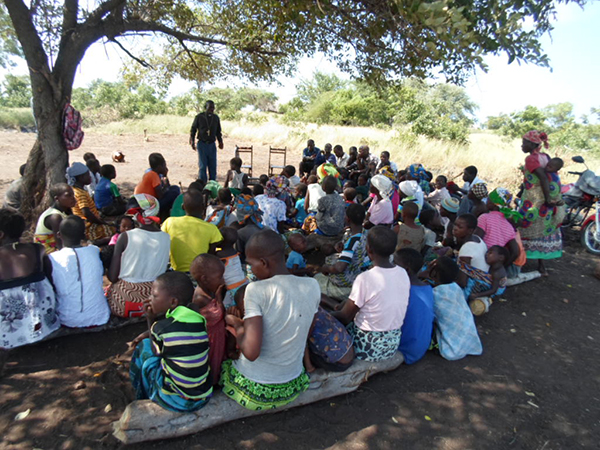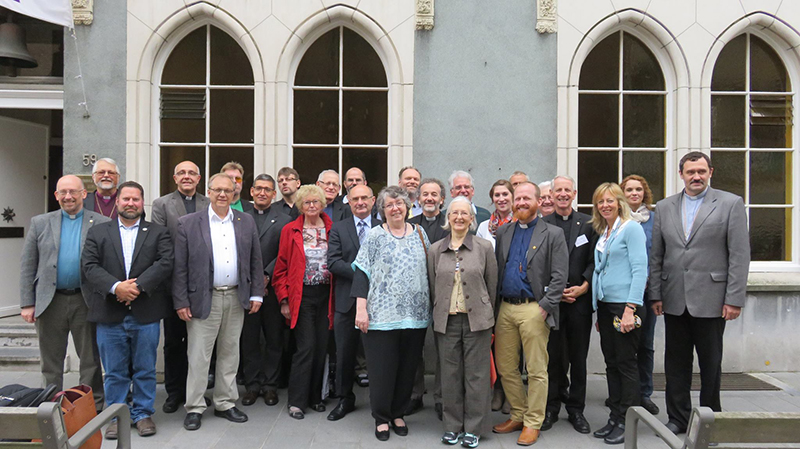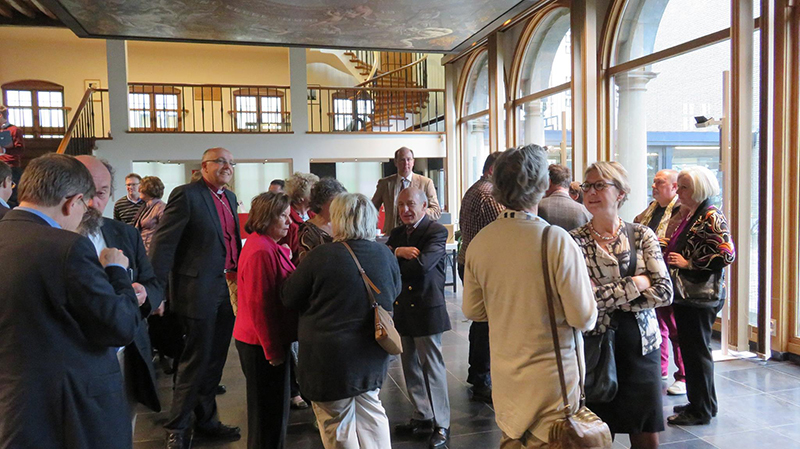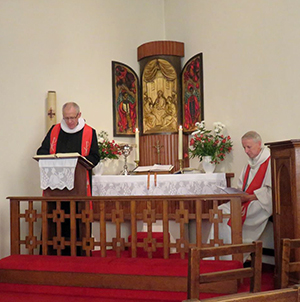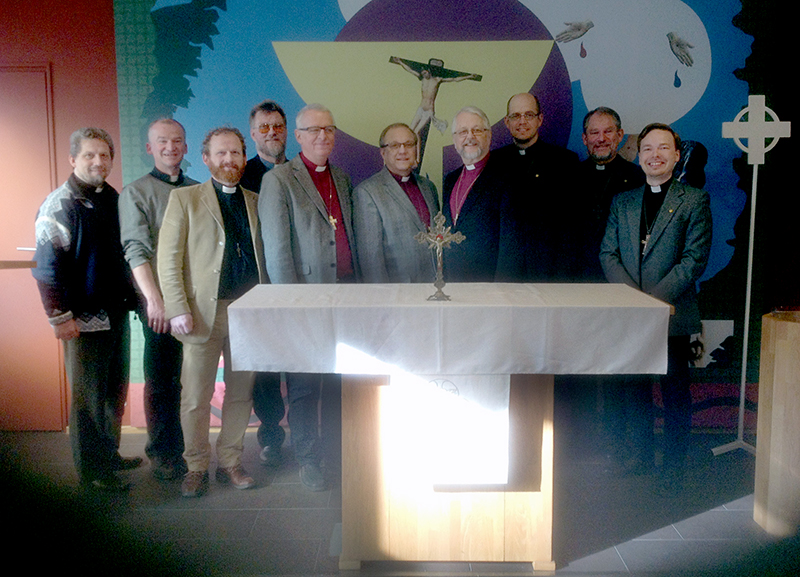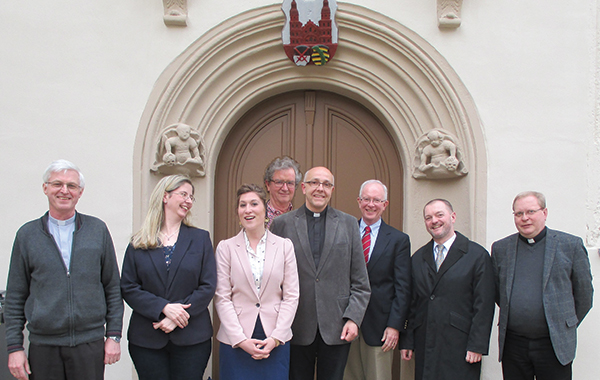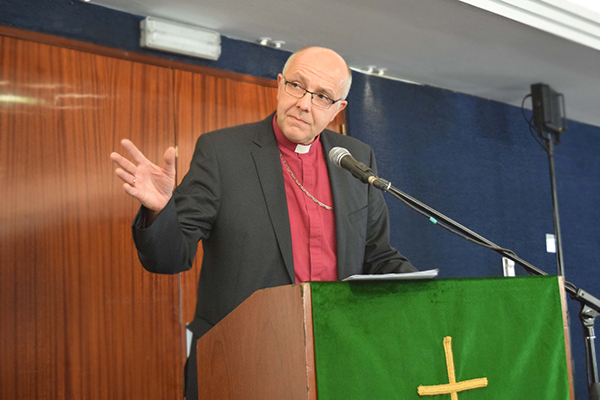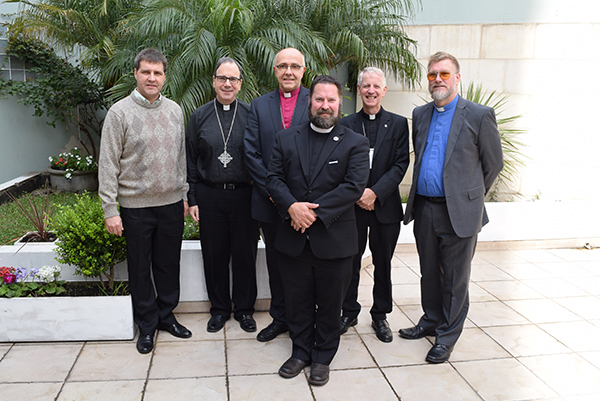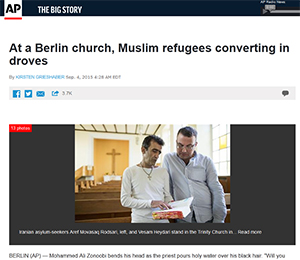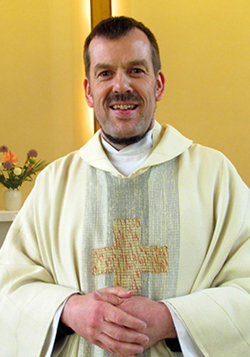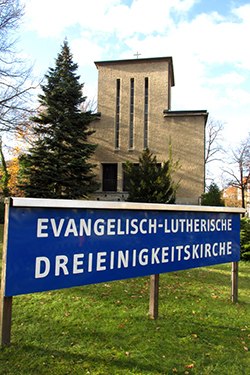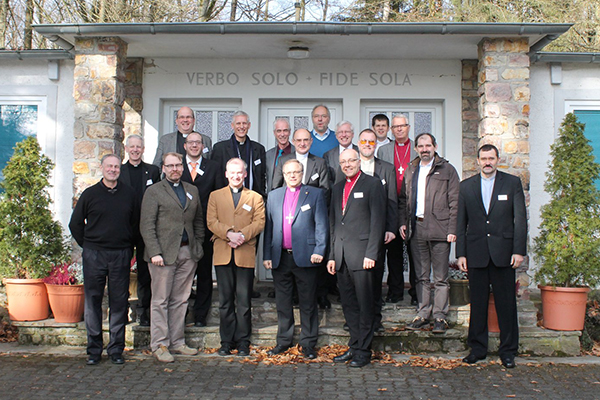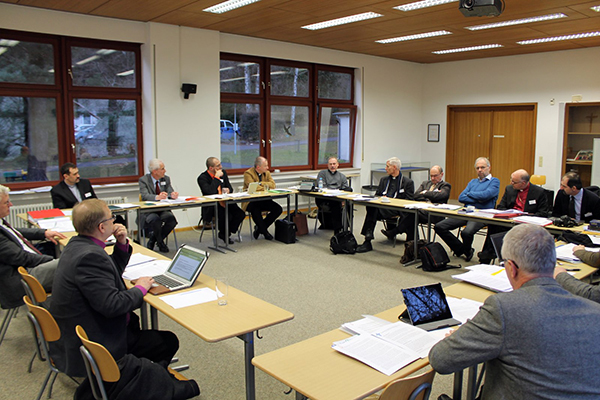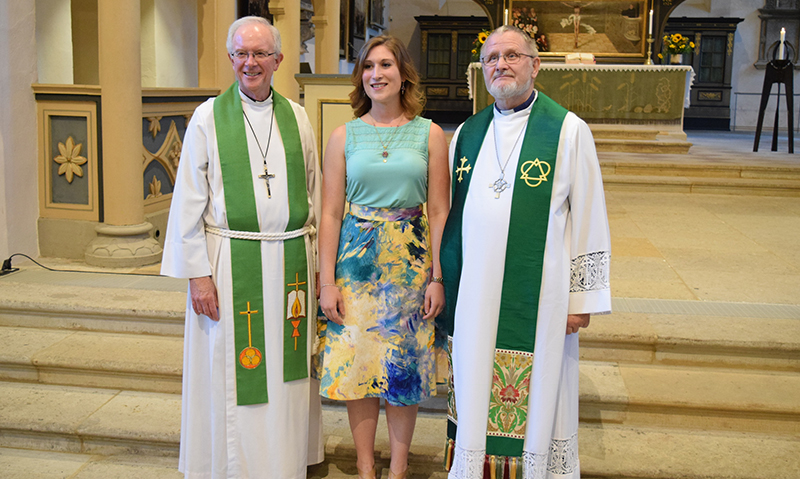
Present and former directors of the Wittenberg Project: Rev. David Mahsman, Kristin Lange, and Rev. Dr. Wilhelm Torgerson.
Germany – The International Lutheran Study and Visitors’ Center in Wittenberg (also known as the “Old Latin School”) bid a formal farewell to its retiring Managing Director and installed his successor in a festival service on Sunday, August 14.
The service, held at the Town Church of St. Mary, the “mother church of the Reformation,” marked the retirement of Rev. David Mahsman, a missionary of The Lutheran Church—Missouri Synod (LCMS), who served seven years in the position. During Rev. Mahsman’s tenure, the rebuilding of the “Old Latin School” (originally built in 1567) was completed, and the new center dedicated in May 2015. Rev. Mahsman and his wife, Lois, return to the United States around September 1 to live in St. Louis, their former home before moving to Germany.
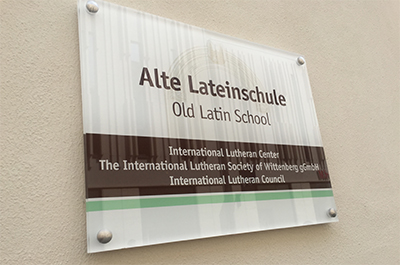
The sign at the Old Latin School, noting the center’s relationship with the International Lutheran Council.
The service included the formal induction of Kristin Lange as the new Managing Director for the Center. Lange, who hails from Kansas, studied at the Humboldt University in Berlin and works effectively in both English and German. Conducting the formal farewell and induction ceremony was Rev. Dr. Albert Collver, the LCMS Assistant to the President for Church Relations. “The focus of the Managing Director’s work will obviously change now,” commented Dr. Collver, “since the building is complete. Now comes the task of shaping the Old Latin School into an active gathering point for confessional Lutherans to meet, study, and get to know church partners from around the world.” Dr. Collver went on to note that the International Lutheran Council (ILC), a worldwide association of confessional Lutheran churches, is working to intensify its ties with the Old Latin School—a relationship indicated clearly on the building’s signage.
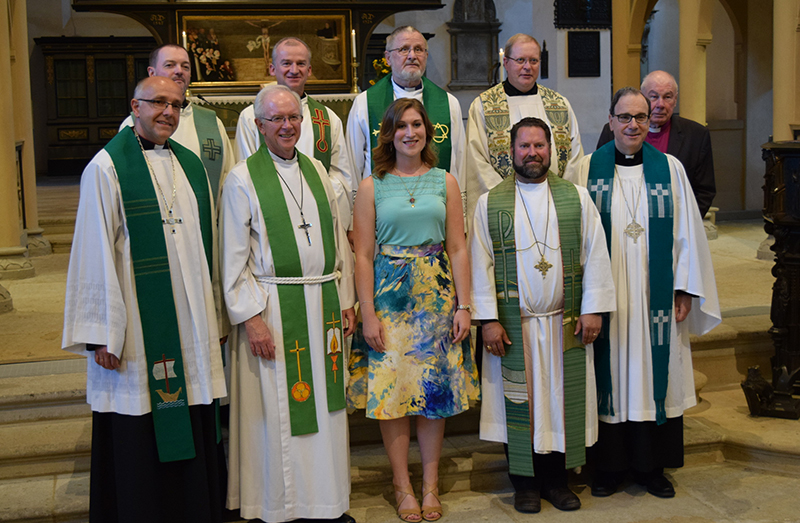
Participants in the in the induction service. Back row: Markus Fischer, Armin Wenz, Dr. Wilhelm Torgerson, Thomas Junker, and Bishop Emeritus Dr. Jobst Schöne. Front row: Bishop Voigt, David Mahsman, Kristin Lange, Dr. Albert Collver, and President Robert Bugbee.
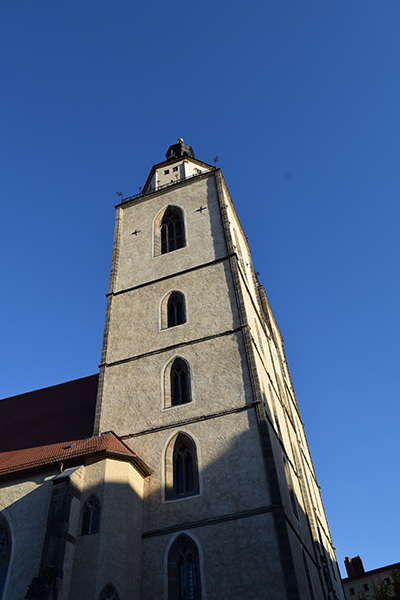
The “mother church of the Reformation” in Luther’s Wittenberg glows in the afternoon sunshine on the day of the ILSW induction festival
Serving as officiant for the service was Rev. Dr. Hans-Jörg Voigt, Bishop of the Independent Evangelical Lutheran Church of Germany (SELK) and Chairman of the ILC. The SELK and LCMS have been sponsoring churches for the Old Latin School project since its inception. Bishop Voigt was assisted at the worship by SELK pastors from parishes near Wittenberg, as well as by Rev. Dr. Wilhelm Torgerson, who served as the original project director prior to Mahsman’s arrival. Preacher for the service was President Robert Bugbee of Lutheran Church-Canada. In his German-language sermon, President Bugbee emphasized the heartbeat of the Old Latin School’s mission: to introduce needy people to the Good News of Jesus Christ. Luther’s old Town Church reverberated with festive organ music provided by Rev. Dr. Christopher S. Ahlman, an LCMS missionary.
The Old Latin School’s prime location at Jüdenstrasse 38 is just steps away from the Town Church’s main portal. The center includes offices, hotel accommodations, a lecture hall, kitchen facilities, and a chapel. In addition, Concordia Publishing House has many materials for sale in the center’s bookstore. The new director, Kristin Lange, also has her residence in the building, which has a busy calendar going into the Reformation 500th Anniversary year in 2017.
———————

